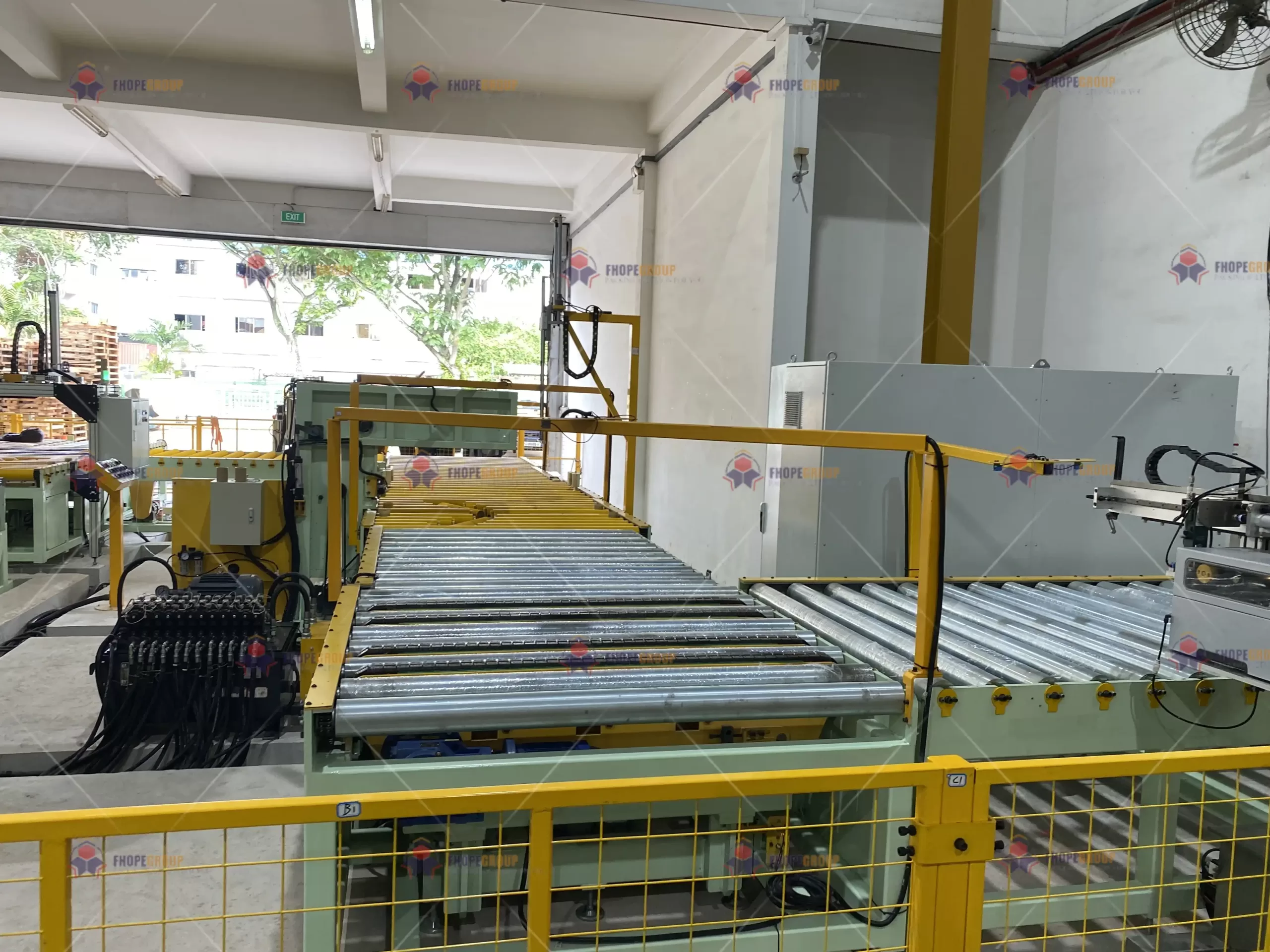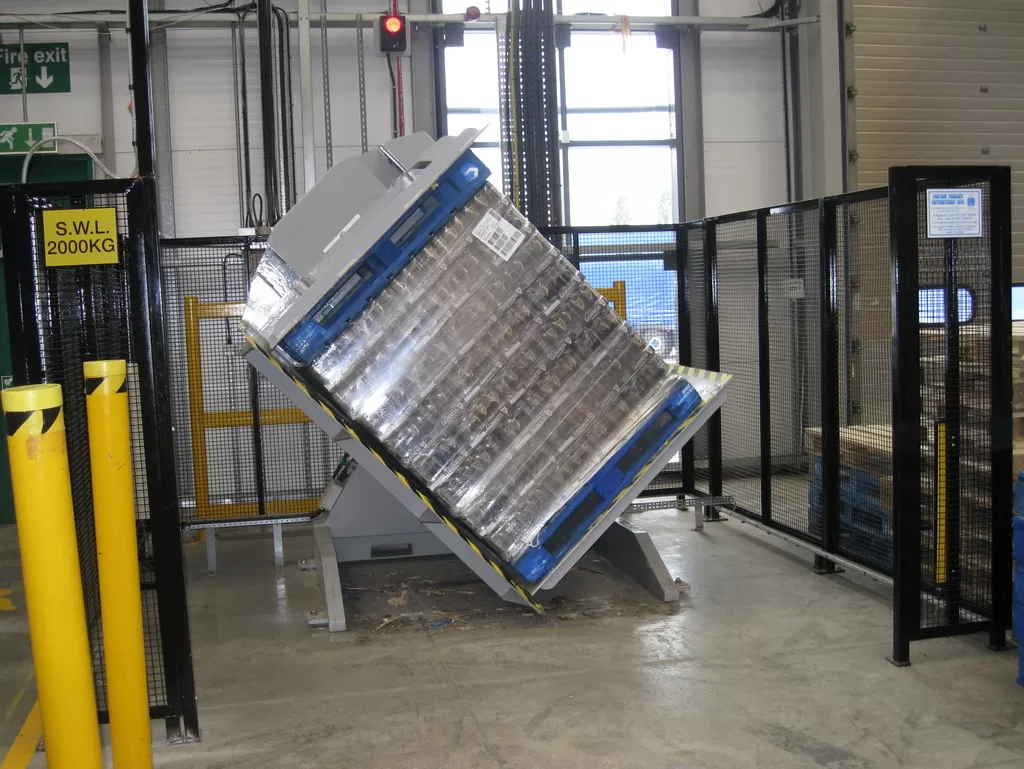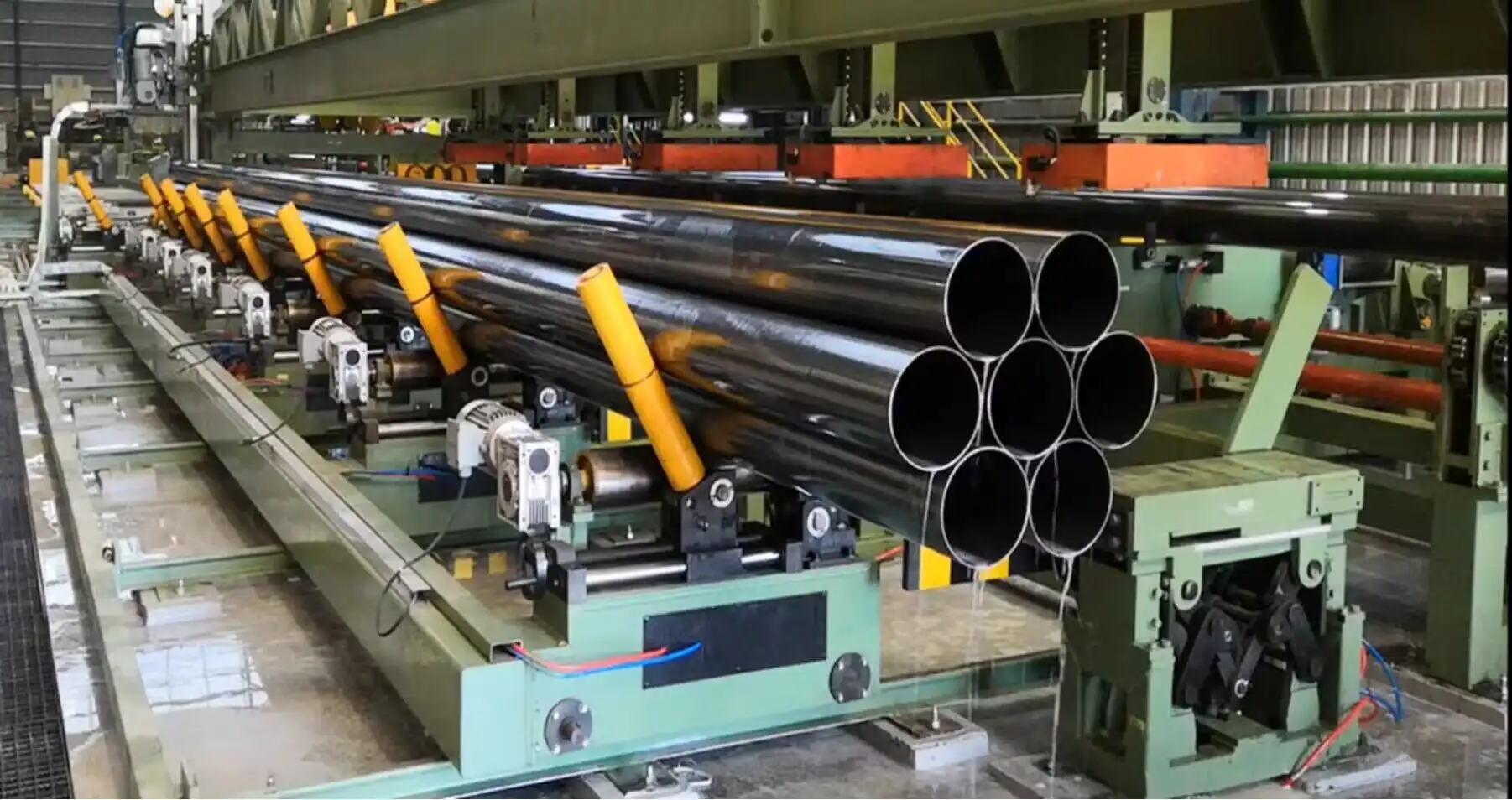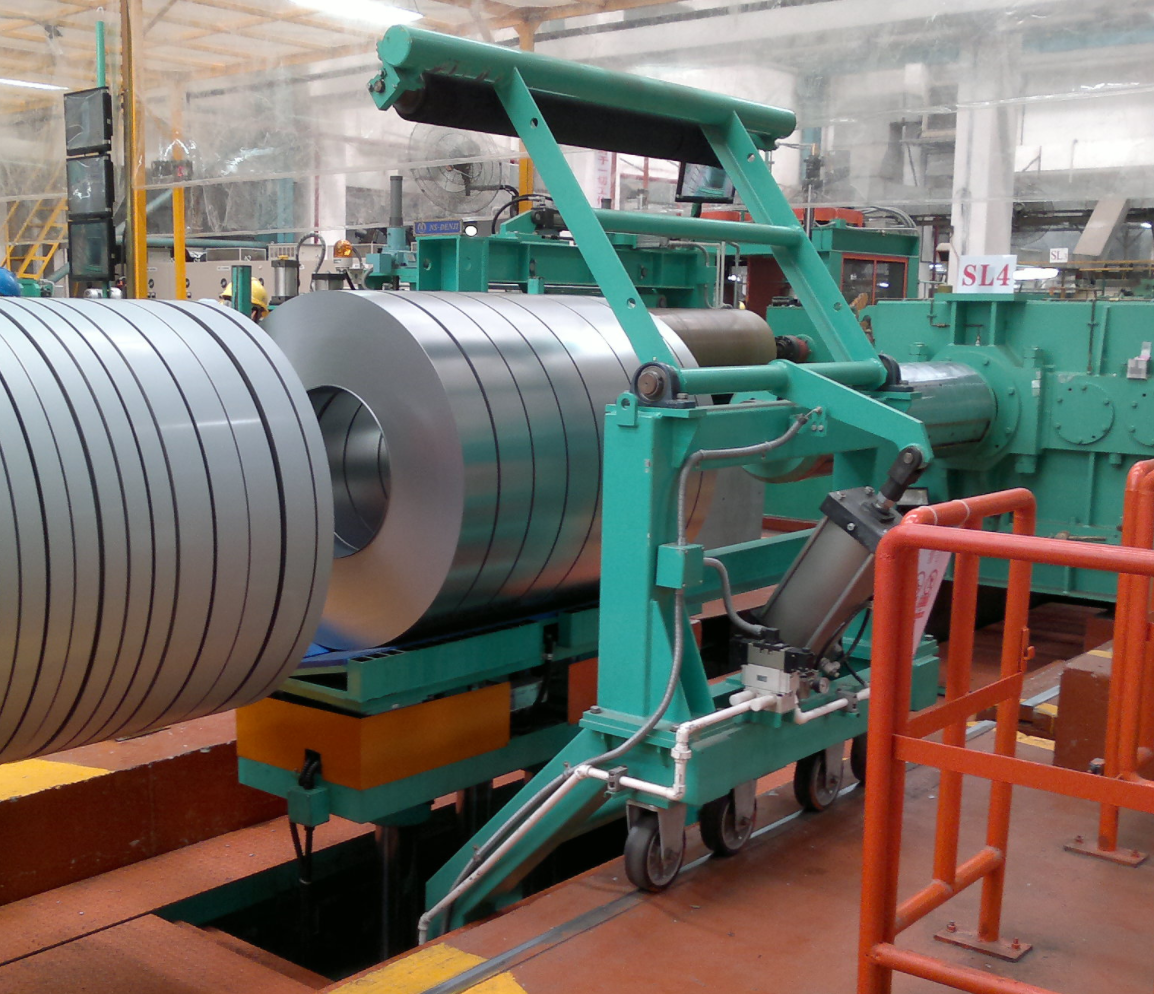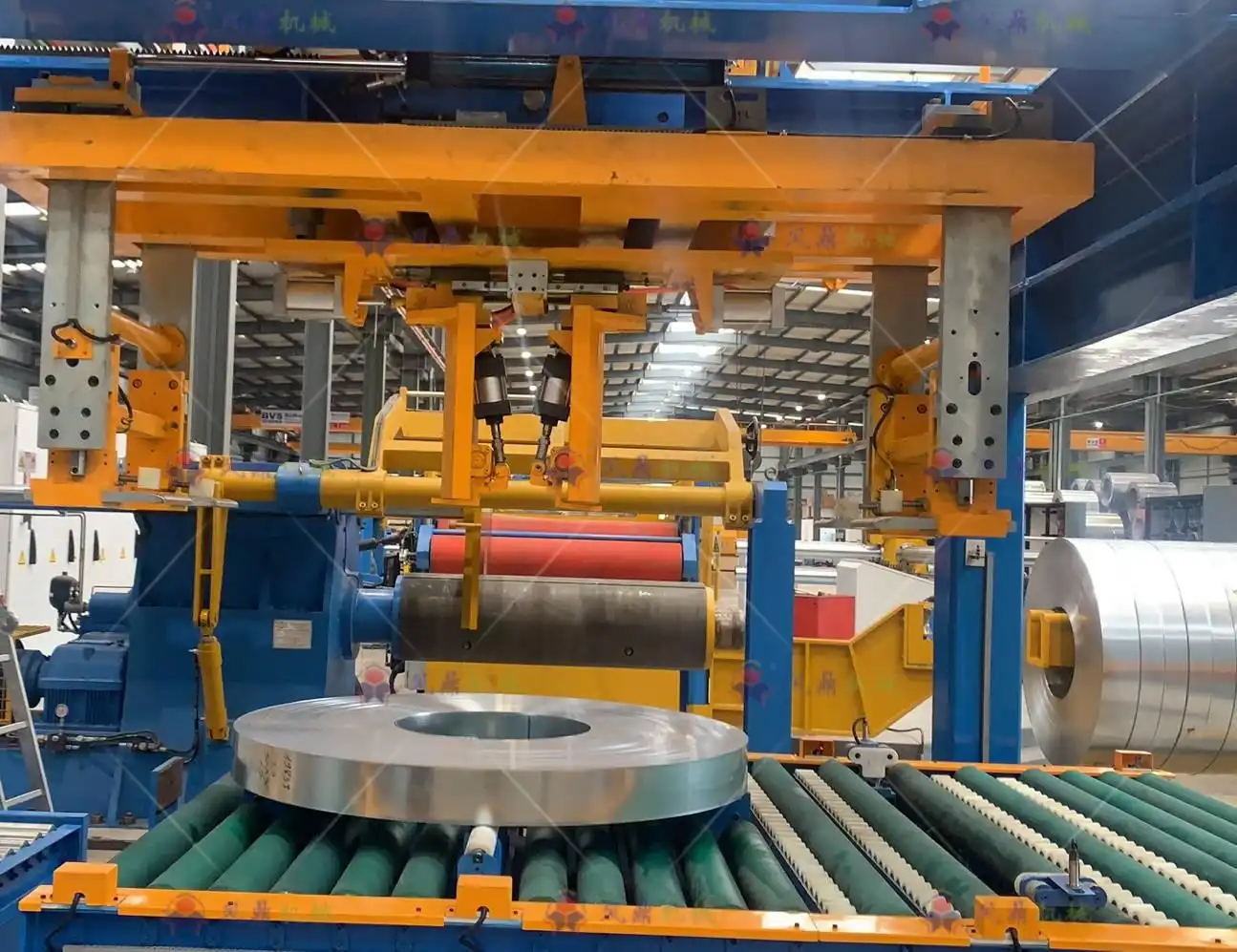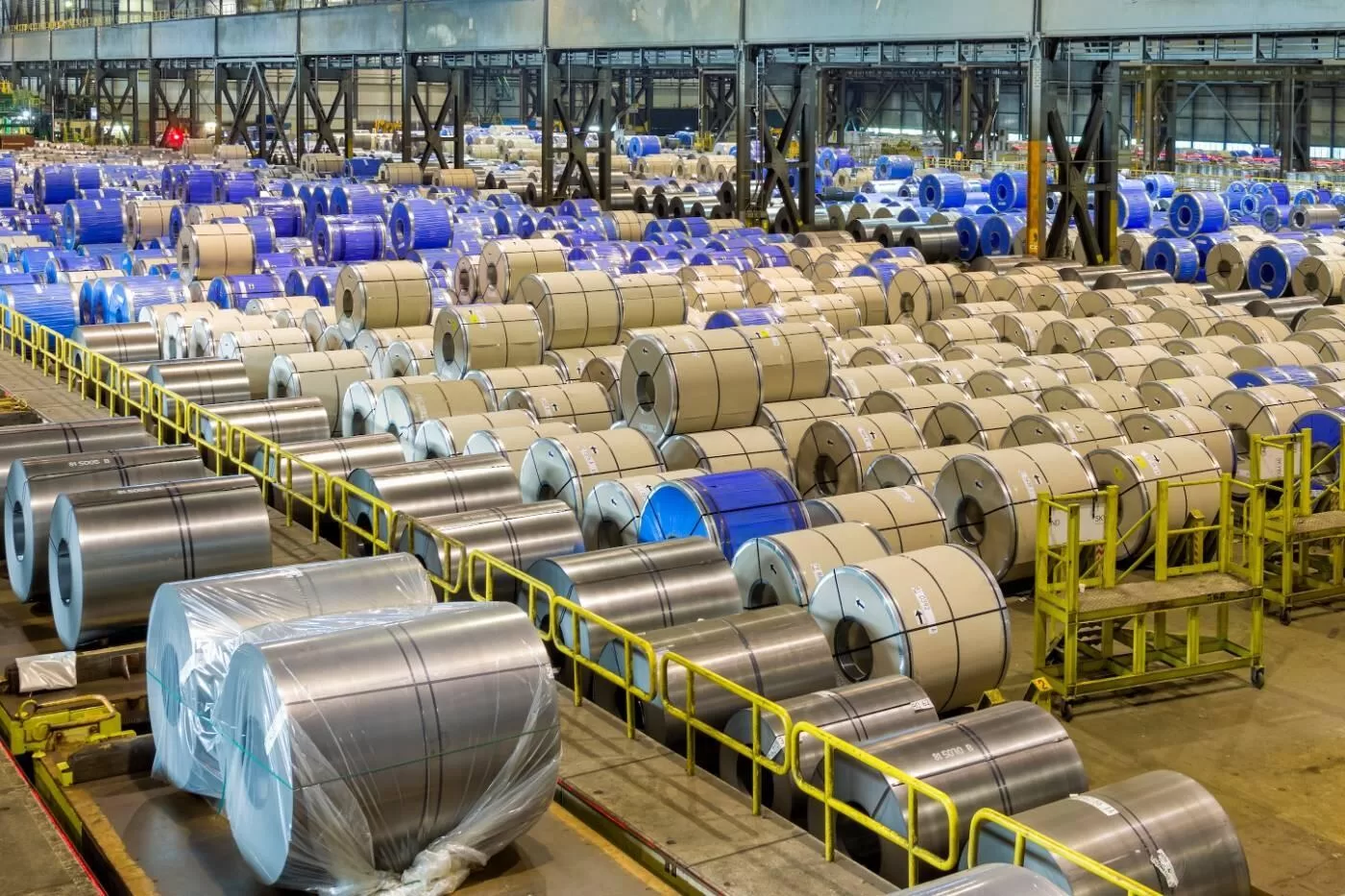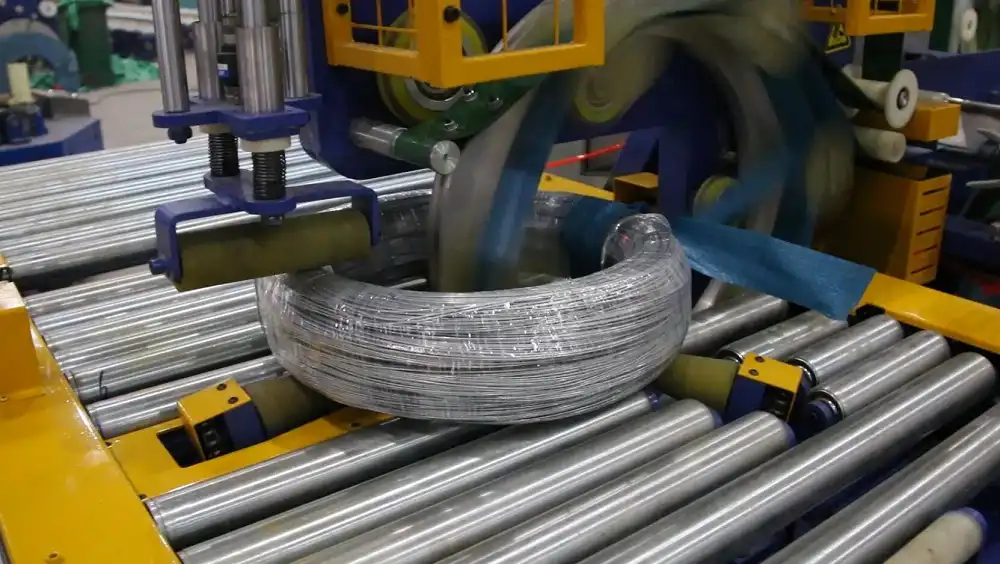In today’s competitive world, every detail counts. Transporting heavy steel coils without damage is a challenge many face. The right technology can transform these issues into mere bumps on the road. Discover how steel coil upenders can safeguard your investment, ensuring seamless transport for your vital materials.
Steel coil upenders are crucial in preventing coil damage during transportation. By facilitating safe and efficient repositioning of the coils, they minimize the risk of mishandling and associated damage. As heavy steel coils are prone to shifting during transit, upenders ensure these materials remain secure, promoting damage-free delivery and cost savings.
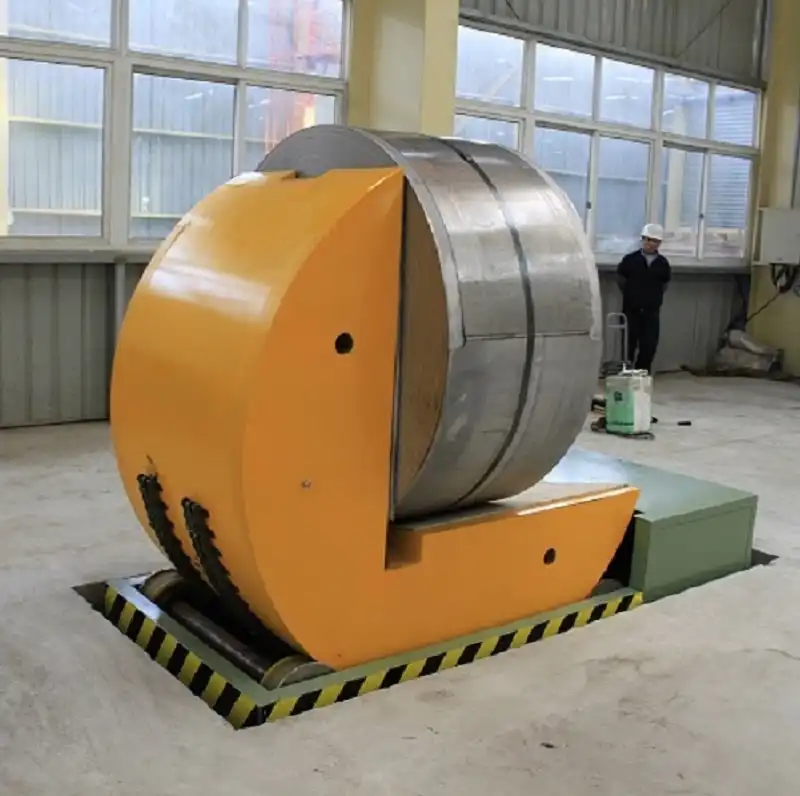
Our journey into efficient coil handling doesn’t stop there. Steel coil upenders are more than just machines; they are safeguards of quality. With them, you can avert potential losses, maintaining the integrity of each coil from the factory to the final destination.
1. What Are Steel Coil Upenders?
Managing heavy materials isn’t just about strength; it’s also about precision. With the advancement of technology, steel coil upenders have emerged as a crucial tool in achieving this balance. Their design addresses the pains of traditional handling by offering safer and more reliable methods. Hence, you can’t overlook their importance in today’s manufacturing processes.
A steel coil upender is a specialized piece of equipment designed to tilt and reposition heavy steel coils safely. Its main purpose is to facilitate the transition of coils from horizontal to vertical positions, or vice versa, in a controlled environment, thereby reducing the potential for damage during handling and transit.

Steel Coil Upenders: How They Elevate Coil Safety and Efficiency
Understanding the core function of steel coil upenders helps when selecting one. These devices are crafted to manage the unique challenges posed by heavy steel materials. During transit, steel coils face risks like shifting, falling, or even deforming due to improper handling. This is where upenders step in, offering a robust solution by converting coils to positions that reduce precarious balancing and enhance stabilization. Importantly, they provide automated solutions that make operations more efficient and reduce reliance on manual labor, thus lowering risks associated with human error. The technicalities can be tough, but knowing your equipment makes the decisions clearer. When looking at upenders, we consider load capacity, the transition mechanism, and integration capabilities. These features align with specific industrial needs. My own experience has shown that selecting the right upender can transform a production line, improving both safety and efficiency.
| Feature | Benefit |
|---|---|
| Load capacity | Supports large coil weights safely |
| Transition mechanism | Smooth positional changes |
| Integration | Syncs with existing systems |
Each feature in a steel coil upender is a step towards preventing damage and improving efficiency. As we deploy these tools, the advantages of automation become evident not just in cost savings, but in safeguarding materials’ quality as well. Better handling through technology is key to industry progress. I’ve witnessed companies turn challenges into milestones with the right tools. These upenders don’t just handle coils; they redefine the handling process.
2. How Do Steel Coil Upenders Prevent Damage?
Steel coil handling is critical in industries like automotive and construction. Upenders help meet safety and efficiency goals, but finding the right solution can be daunting. Prioritizing prevention of damage is essential for avoiding costly interruptions and maintaining customer trust.
Steel coil upenders offer a reliable solution. They rotate coils safely and efficiently, minimizing the risk of damage during shifts. These machines provide controlled and steady motion that prevents mishaps, ensuring the coils remain intact and ready for processing.
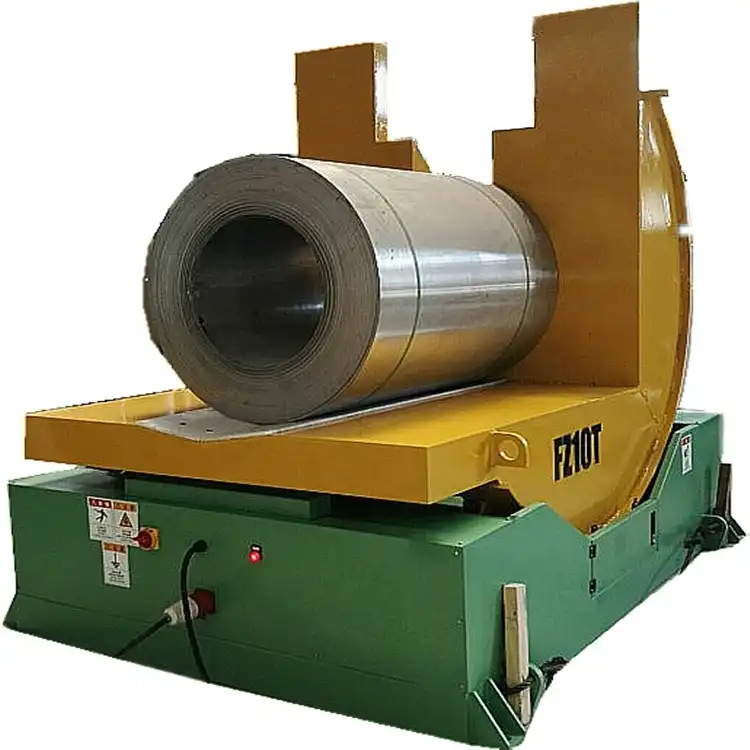
Importance of Precision in Upender Operation
Proper use of upenders requires attention to detail. The handling of heavy coils involves risks that should be properly managed. Understanding the mechanics and physics behind these machines can improve safety and efficiency in operations.
| Factors | Implications | Solutions |
|---|---|---|
| Weight Balance | Imbalance can cause tilting and damage | Automatic leveling systems |
| Control Mechanisms | Manual errors may lead to accidents | Auto-control features to ensure stability |
| Speed of Operation | Fast movement risks mishandling | Adjustable speed settings for control |
Effective use of coil upenders involves precision in weight distribution and control. Automation can further minimize risks, enabling safer and smoother handling. Additionally, understanding the specific needs of your operation can guide you in selecting upender features that best meet your requirements. By focusing on these aspects, you’ll facilitate more reliable and efficient coil handling.
3. What Are the Benefits of Using Upenders?
Keeping workplace efficiency while handling heavy loads is a priority, but challenges abound with conventional methods. Upenders revolutionize this process, transforming the handling and transportation of heavy materials with ease.
Upenders improve operational efficiency by allowing safe and precise handling of materials like steel coils. The automation reduces labor risks and time, ensuring consistent, high-quality output. This investment pays off with decreased downtime and enhanced safety standards for workers and products alike.
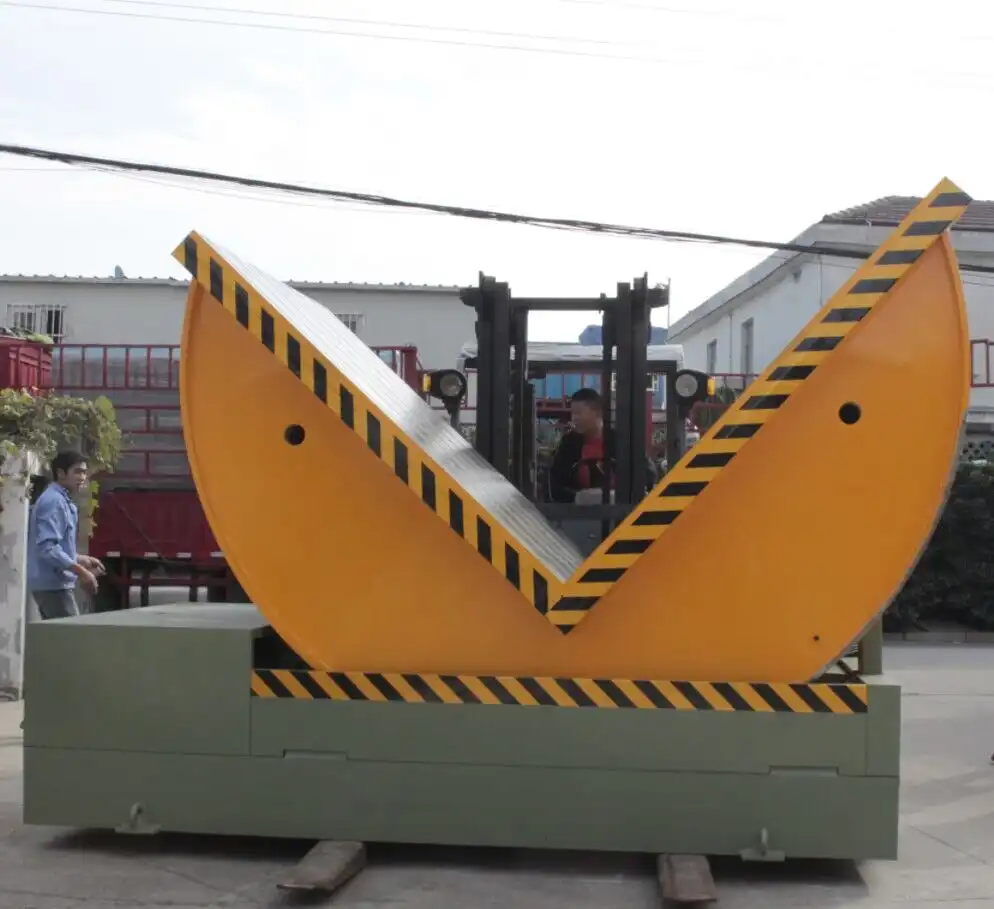
Impacts on Operational Efficiency
The role of upenders expands beyond simple rotations. Their impact is felt across different operational aspects, resulting in substantial improvements in workflow and resource management.
| Benefit | Description | Outcome |
|---|---|---|
| Labor Reduction | Automation decreases manual effort and error potential | Lower operational costs |
| Consistency | Ensures uniform handling and minimizes product damage | Improved quality control |
| Safety Enhancements | Reduces risks associated with manual handling | Fewer workplace injuries |
Using upenders transforms operations, making them more predictable and manageable. Consistent processes enhance product quality and reduce waste. The automation also alleviates worker strain, promoting a safer work environment. Thus, upenders are not just about handling loads; they are about optimizing the entire production cycle for the better.
Conclusion
Steel coil upenders are vital for damage prevention and efficiency during transport, offering enhanced safety and reduced economic losses. Investing in the right upending technology can vastly improve operations, ensuring a more reliable and safer workflow, thus securing the future success of your operations.
Steel coil upenders are vital for damage prevention and efficiency during transport, offering enhanced safety and reduced economic losses.


